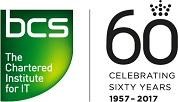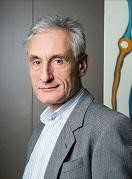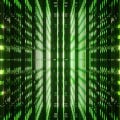“Machines that learn to see”
Monday 8 May 2017 6:00 – 9:30pm
The Royal Society, 6-9 Carlton House Terrace, London, SW1Y 5AG

As part of the BCS 60th anniversary celebrations this Lovelace lecture is free of charge.
Abstract
Machine vision works nowadays. Machines can: navigate using vision; separate object from background; recognise a wide variety of objects, and track their motion. These abilities are great spin-offs in their own right, but are also part of an extended adventure in understanding the nature of intelligence through visual perception One general question about intelligent systems is whether they will be dominated by “generative” models which explain data as a sequence of transformations, or by black-box machines that are trained on data at ever greater scale? In perception systems this boils down to the comparative roles of two paradigms: analysis-by-synthesis versus empirical recognisers. Each approach has strengths, and empirical recognisers especially have made great strides in performance in the last few years, through deep learning. Exciting progress that has already been made on integrating the two approaches. It is also fascinating to speculate what other new paradigms in learning might transform the speed at which artificial perception can develop.
Andrew Blake

Bio
Andrew Blake is an engineer whose innovative work on image analysis has helped make it possible for computers to react to the world around them, based on the visual data they receive. His research has focused particularly on the accurate tracking of motion and the reconstruction of visible surfaces.
Amongst his contributions to the field, he is perhaps best known for the development of the Condensation algorithm that allowed computers to interpret complex visual motion in real time. At Microsoft Research Cambridge, Andrew was also part of the team that put the machine intelligence into the company’s Kinect controller — a revolutionary gaming system capable of following instructions dictated by the body movements of its users.
The recipient of the Silver Medal and the MacRobert Gold Medal of the Royal Academy of Engineering, Andrew also won the prestigious Mountbatten Medal from the Institution of Engineering and Technology. He is a Fellow of the Royal Academy of Engineering and of the Royal Society.
Registration and coffee- 6pm to 6:30pm
Lecture- 6:30pm to 8:30pm
Drinks Reception- 8:30pm to 9:30pm
Opening address
Professor Sir Timothy O’Shea FRSE
University of Edinburgh
Professor Sir Timothy O’Shea FRSE, Principal of the University of Edinburgh. A computer scientist, he is a graduate of the Universities of Sussex and Leeds. He became Principal and Vice-Chancellor of the University of Edinburgh in 2002. Professor O’Shea was awarded a Knighthood in the Queen’s 2008 New Year’s Honours List in recognition of his services to higher education.
Chris Bishop, Laboratory Director at Microsoft Research Cambridge
Chris Bishop is also Professor of Computer Science at the University of Edinburgh and a fellow of Darwin College, Cambridge.
In 2004 he was elected Fellow of the Royal Academy of Engineering, and in 2007 he was elected Fellow of the Royal Society of Edinburgh. Chris obtained a BA in Physics from Oxford, and a PhD in Theoretical Physics from the University of Edinburgh.
Vote of thanks
Professor Mark Girolami FRSE FIET, Chair of Statistics, Imperial College London
Mark Girolami is an EPSRC Established Career Research Fellow (2012- 2018). He is the Director of the £10M Lloyds Register Foundation- Turing Programme on Data Centric Engineering and previously led the EPSRC funded Research Network on Computational Statistics and Machine Learning.
In 2011 he was elected to the Fellowship of the Royal Society of Edinburgh where he was also awarded a Royal Society Wolfson Research Merit Award. He was one of the founding Executive Directors of the Alan Turing Institute for Data Science from 2015 to 2016 before taking leadership of the Data Centric Engineering Programme at The Alan Turing Institute.
Lovelace lecture | BCS Academy of Computing


